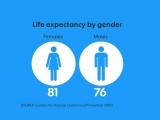WHY YOU MAY NOT LIKE SO-CALLED "LIKE KIND EXCHANGES"
George Wilson Adams CPA MBA January 11, 2020

What Is a Like Kind Exchange?
IRC Section 1031 allows taxpayers to exchange like-kind business and investment real estate tax free. Under the new tax law that took effect on January 1, 2018 personal property and intangible assets no longer qualify for a tax free like kind exchange. Generally only real estate used for business or investment purposes qualifies. Real estate held as inventory by a dealer does not qualify for a like kind exchange. Real estate in one state traded for real estate in a different state is generally considered like-kind. U.S. real estate traded for foreign real estate is not like kind.
Tax-Free Business Vehicle Trade-Ins Are Gone
Under the new tax law any trade in of an old business vehicle for a new business vehicle is potentially taxable. Through December 31, 2017 business owners could trade a used vehicle for a new vehicle and any gain would be deferred and rolled into the cost basis (used for depreciation) of the new vehicle. Business owners considering trading in their vehicles should determine the amount of any taxable gain and prepare to owe taxes.
Like Kind Exchanges Are Actually NOT "Tax-Free"
One common misconception about like kind exchanges is that they are tax-free. This is false. What actually happens is that any gain that would otherwise be taxable is simply deferred and reduces the cost basis of new, replacement property.
Here is a frequently used calculator to determine gain from a like kind exchange:
https://www.cchwebsites.com/content/calculators/LikeKindExchange.html
Timing Requirements
Many people trying to do a like kind exchange will give up the property they don't want to a Qualified Intermediary. They then have 45 days to identify replacement property and 180 days to actually receive (take title) to replacement property. Such a transaction is called a deferred exchange or "Starker" exchange after the court case that permitted it. This is a high-stakes, very stressful transaction where a taxpayer usually struggles to find satisfactory replacement property.
An alternative transaction is called a "Reverse Starker" or parking exchange where a taxpayer acquires replacement property in advance and parks it with a Qualified Intermediary. This intermediary also holds the property to be given up. The taxpayer has 180 days to dispose of the property he wants to give up to a third party- another stressful, high-stakes transaction.
These strict timing rules make it difficult to accomplish a like kind exchange. Real estate markets are in constant flux and it is difficult to cross-coordinate the actions of multiple people.
Debt Relief is Taxable
Any net debt relief received in a like kind exchange may be taxable, up to the amount of any gain pertaining to the property being given up. So if you are giving up a property with a $100,000 mortgage on it and will receive new, replacement property with a $60,000 mortgage on it then you have net debt relief of $40,000. Some or all of this debt relief may be taxable.
The only way to have a completely non-taxable like kind exchange is if your debt increased or the amount of debt on the old and the new properties just happens to be exactly the same.
Also, any cash you receive from the exchange is per se taxable.
Beware of Tricky Rules
In addition to the restrictions discussed above further special rules apply to like kind transactions with related parties, and exchanges of vacation homes, leasehold property with at least a 30 year term, and multi-asset exchanges.
For further information on like kind exchanges see IRS Publication 544 and IRS Form 8824.
George Adams
Certified Public Accountant Master of Business Administration
Tel: (207) 989-2700 E-Mail: GeorgeAdams@IntelligenceForRent.com
450 South Main Street: The HQ of IQ
Brewer, Maine 04412-2339
©2015 Copyright George Adams CPA MBA. All Rights Reserved.





































































